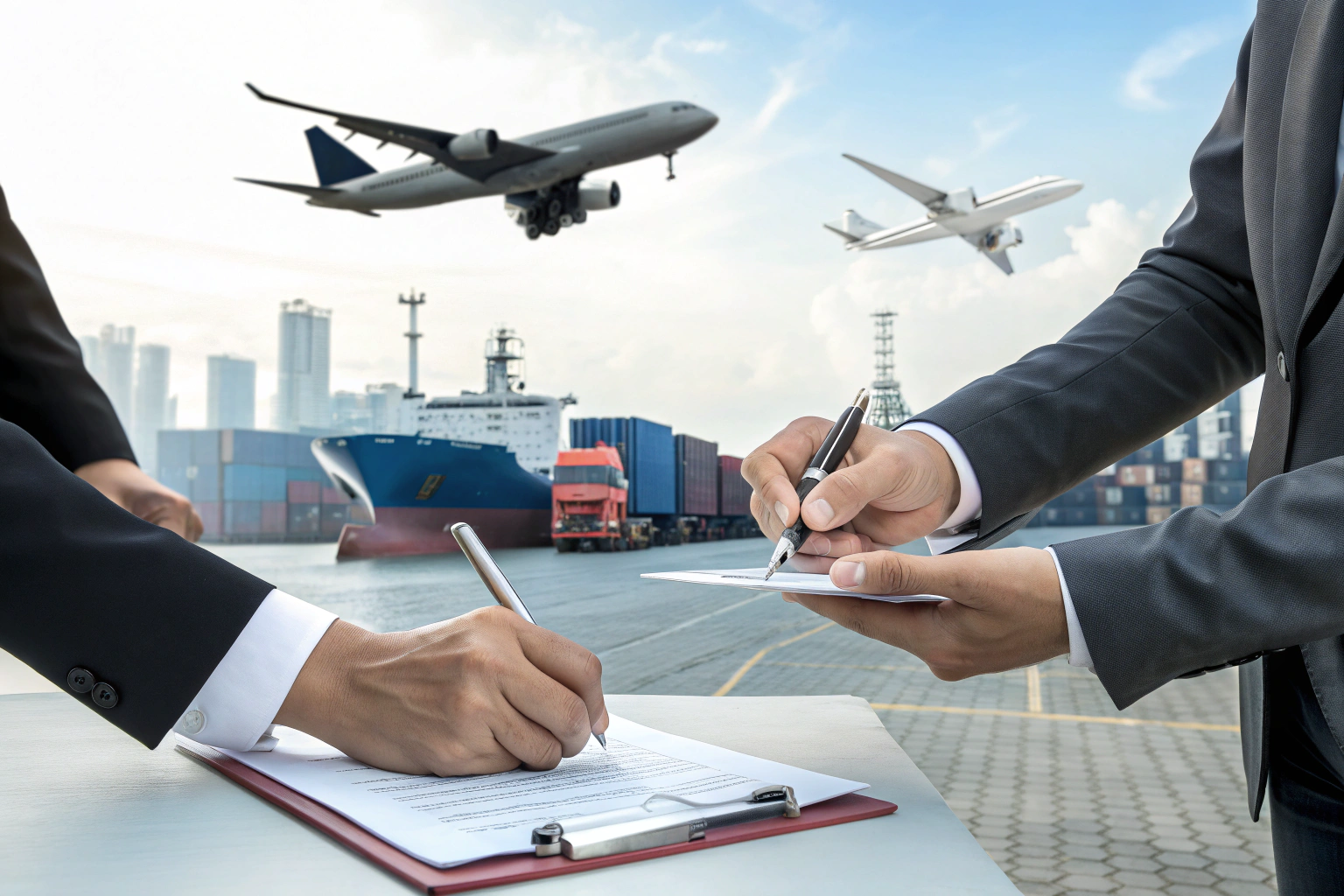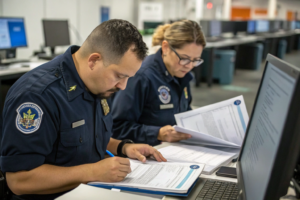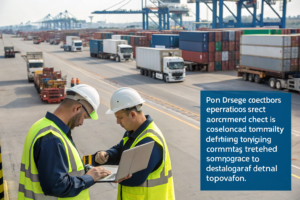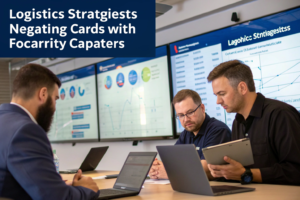International trade is complex. Buyers and sellers must agree on who pays for transport, insurance, and customs. They also need to know when risk transfers. This is where Incoterms matter.
Incoterms are global trade rules. They define costs, risks, and responsibilities between buyers and sellers.
Let’s break them down and see why they are critical in freight forwarding.
What Exactly Are Incoterms?
Incoterms stands for International Commercial Terms.
They are rules published by the International Chamber of Commerce (ICC).
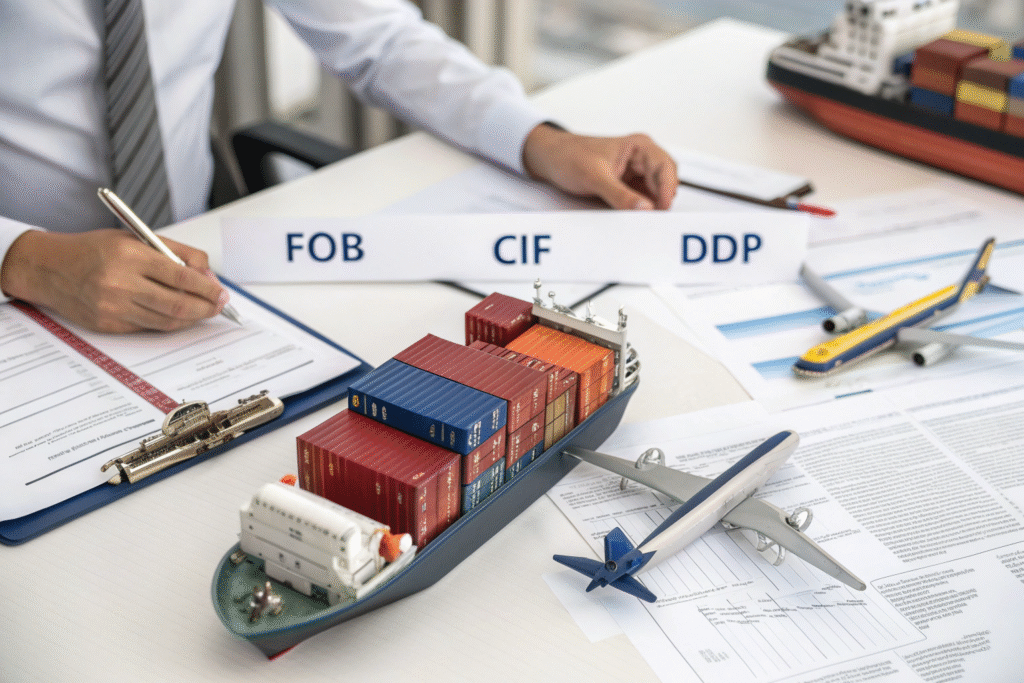
How Do Incoterms Work in Trade?
Each term explains who arranges transport, pays insurance, and handles customs. For example, FOB (Free on Board) means the seller delivers to the port, and the buyer takes over. The ICC keeps the official definitions.
Why Were They Created?
They reduce disputes. Without them, buyers and sellers may argue about costs and duties. With them, contracts follow clear and standard rules. Investopedia gives a simple overview.
Why Do Incoterms Matter in Freight Forwarding?
Freight forwarders depend on Incoterms.
They use them to plan services, arrange transport, and prepare customs documents.
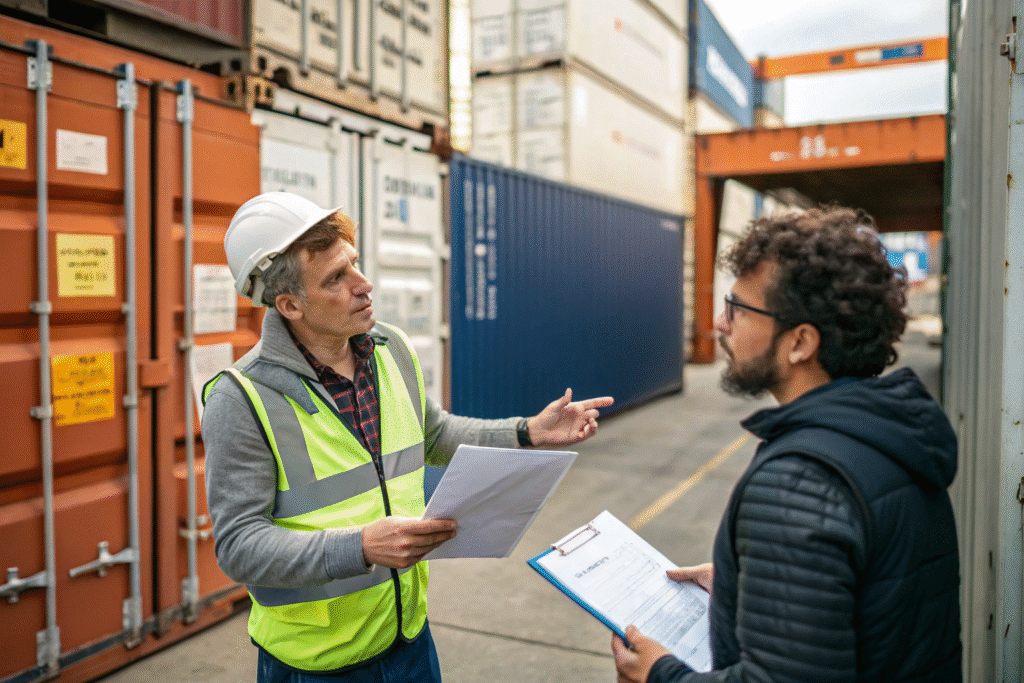
How Do Forwarders Use Incoterms?
Forwarders calculate costs and manage shipments based on the chosen term. Under DDP (Delivered Duty Paid), they handle everything to the buyer’s door. Under EXW (Ex Works), the buyer must collect goods. Trade.gov explains how Incoterms shape logistics.
What Happens Without Incoterms?
Confusion and delays. Buyers may assume sellers cover duties. Sellers may think buyers do. Forwarders use Incoterms to prevent this. Shipping and Freight Resource highlights why they are essential.
What Are the Most Common Incoterms in China Exports?
Chinese exporters rely on a few main terms.
The most common are FOB, CIF, and DDP.
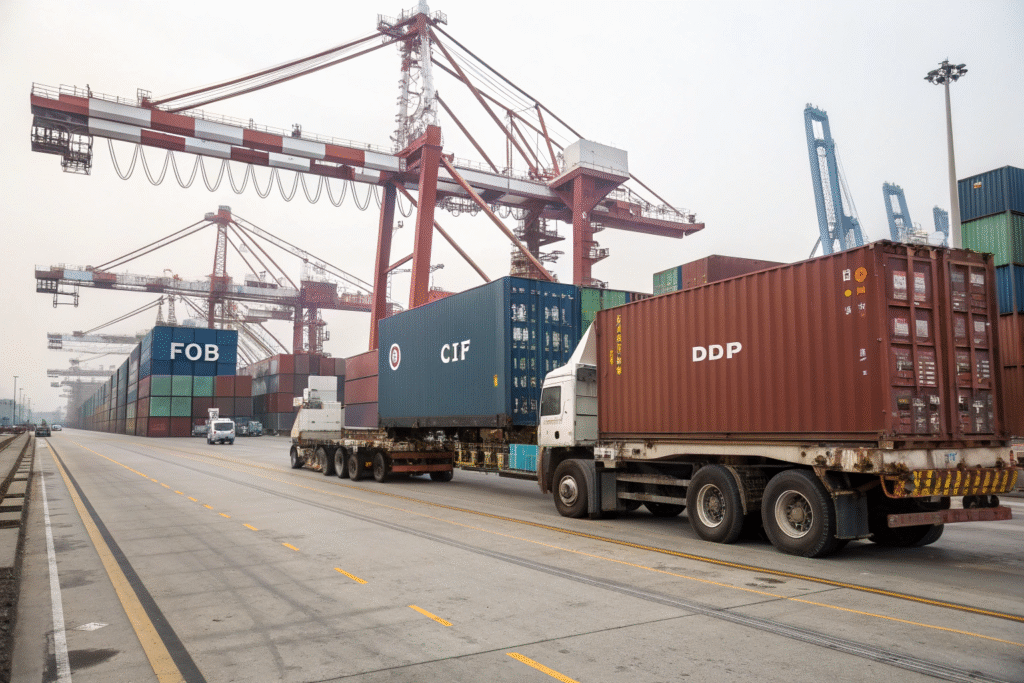
Why Is FOB Popular?
FOB is simple and widely accepted. Sellers deliver goods to the port, and buyers arrange freight and insurance. This gives buyers more control. The ICC guide explains FOB clearly.
Why Do Some Importers Choose DDP?
DDP makes importing easy. The seller manages transport, customs, and duties. Buyers like the convenience, but costs are higher. Freightos reviews the pros and cons.
How Do Importers Choose the Right Incoterm?
The right choice depends on budget and experience.
Importers should weigh convenience, control, and cost before choosing a term.

What Should New Importers Consider?
New importers often pick CIF or DDP. These terms reduce stress because sellers take more responsibility. Experienced buyers may prefer FOB for more control. Export.gov guides importers on these choices.
Why Ask a Forwarder for Advice?
Forwarders know how each term affects duties, risks, and final delivery. Their advice helps importers avoid mistakes. Port Technology shows how forwarders guide trade partners.
Conclusion
Incoterms are the foundation of global trade. They define who pays, who clears customs, and when risk moves from seller to buyer.
For freight forwarders, they set the rules for planning and pricing. For importers, they prevent disputes and protect profits. Choosing the right Incoterm with the help of a forwarder ensures smoother shipping and safer business.
